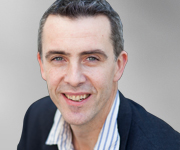I LOST my keys recently — what I would describe as a “disaster of national proportions”. I like my keys and I’m used to them. Even if I get them replaced it will never be quite the same.
Losing a doctor, or any other professional a person has established a significant human connection with, can be a similarly disorientating loss. A female friend once listed the professionals in life you really do not want to lose — doctor, dentist, priest, lawyer, accountant and hairdresser (this was in reverse order of importance, I believe).
The need to establish a new relationship can come from losing a previous one, such as a doctor retiring or moving, or the patient moving, or a relationship simply running its course.
Another entry point into a new doctor–patient relationship can be starting from scratch. This may involve a young patient (particularly a bloke) finally realising their mortality, and succumbing to the idea they may actually need medical advice regarding their health at some stage in life.
Sometimes people ramp up their expectations of the doctor–patient relationship. In general practice, this can coincide with a new significant diagnosis, particularly a chronic disease. Patients often refer to this as having to find a “real doctor” (why anyone would see a doctor they think is not a “real doctor” is something I find … err … challenging).
So, if a patient needs to find a new doctor what do they do? How do they go about this, and what factors go into the mix?
Often, the choice will be determined by quite simple issues, such as whoever happens to be nearby, is cheap and is available. Certainly, in medically uncomplicated scenarios this is often the way things pan out.
Sometimes, choice is imposed by external factors, such as in rural or remote Australia where doctor choice is limited. Other patients will be more fussy, either because they have a complicated medical condition or because, well, they are more fussy. I, and I think most medicos, would be like this.
We, being in the game, realise standards can vary a lot, and that bad doctoring is not something to be messed with. If I am going to see a neurosurgeon, that person is going to be a damn good neurosurgeon.
So, how do patients find out who is the right doctor to see? And, for that matter, how does a doctor, especially in the primary care role, know who is the right doctor to refer a patient to?
I have in my head a list of factors that go into the mix. First, there are the patient factors. Is my patient a fast-talking, no-nonsense businessman who needs a straight-talking surgeon to fix his hernia? Or is she a quiet, reserved elderly lady in need of a good listener to discuss her arthritis? Is money an issue? Or mobility?
Second, the lock has to match the key, so factors about the doctor in question also come into play. Billing, waiting times (which may be particularly relevant with certain conditions and/or patients), the receptionist, getting through on the phone, parking, language, cultural and racial backgrounds ― the list goes on. And we haven’t even mentioned whether they are actually any good at what they do.
How does a patient looking for a doctor, or a doctor referring to another health professional, find this out? Well, mostly word of mouth, or trial and error.
Patients ask around or just “suck it and see” by visiting a new doctor. With specialists or allied health, it is usually a recommendation from family or friends, or whoever is suggested by the referring GP.
The referring GP in turn may be using recommendations from others, or may be giving an individual referral target “a whirl”.
In our increasingly reluctant role of medical gatekeepers, the referral list in a GP’s head is one that continually needs updating, especially with increasing subspecialisation.
Now, if only I could remember the name of that ophthalmoplastic surgeon who has a special interest in BCC removal from the inner canthus. And I think I remember hearing his rooms have good parking but he has a cranky secretary …
Dr James Best is a GP practising in Sydney. He won the RACGP General Practice Supervisor of the Year Award in 2010.
Posted 17 October 2011

 more_vert
more_vert
I agree with Dr Best’s friend that I would not want to lose my doctor, dentist or hairdresser – in that order! As a baby boomer I, like many, face such a possibility, maybe even losing the trifecta. I inherited my current GP and he inherited our family when our previous GP left the practice and his patients were assigned to the new younger doctor; nearly 25 years later he is still there and I hope he is there for many more years. As well as his medical skills and knowledge he has good interpersonal and communication skills which have been valued during some difficult times regarding our health as we age. He appears to have good knowledge of specialists in the area as we have no complaints and treatment has been very professional. He works in a busy medical centre and many patients are happy to see the ‘next available doctor’ – a practice I find difficult to understand. We cannot make appointments and often have a long wait, but while he is there, seeing another doctor is never an option.